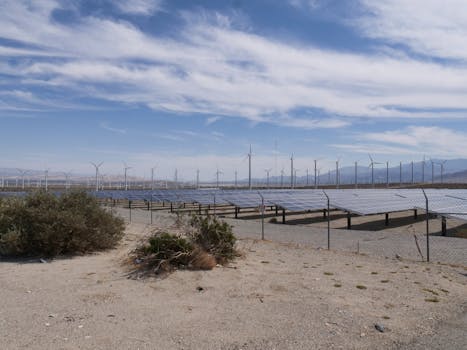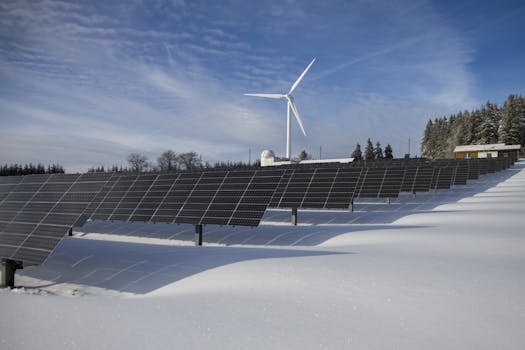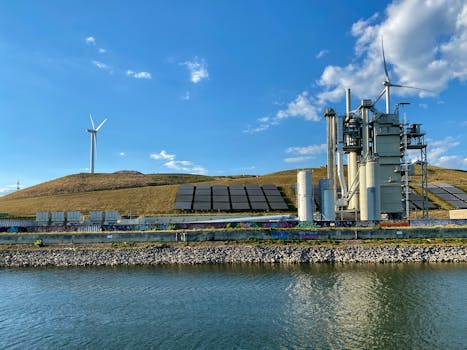
Introduction

Breakthroughs in renewable energy technology are transforming our approach to sustainability. As the world faces climate change challenges, innovative solutions in renewable energy are crucial for a sustainable future. This article delves into recent advancements in renewable energy technology, their importance, and their role in promoting sustainability.
Solar Energy Innovations

Solar energy remains at the forefront of renewable energy technologies. Recent breakthroughs include the development of perovskite solar cells, which offer higher efficiency rates and lower production costs compared to traditional silicon-based cells. These advancements are driving the adoption of solar energy in residential and commercial sectors.
Furthermore, solar energy storage solutions, such as advanced lithium-ion batteries and flow batteries, are enhancing the reliability and efficiency of solar power systems. These innovations allow for energy to be captured and used at any time, significantly increasing the viability of solar as a primary energy source.
Wind Energy Developments

Wind energy technology has also seen significant advancements. Modern wind turbines are now equipped with smart technology that optimizes performance and reduces maintenance costs. Innovations in turbine design, such as larger rotor diameters and advanced materials, have led to higher energy generation capabilities.
Offshore wind farms are becoming more prevalent, with floating turbine technology allowing for installations in deeper waters. This expansion is crucial in harnessing wind energy in areas previously deemed unsuitable for traditional wind farms.
Hydrogen Fuel Cells

Hydrogen fuel cells are gaining traction as a clean energy source. Breakthroughs in hydrogen production methods, such as electrolysis using renewable energy sources, are making hydrogen a viable alternative to fossil fuels. Fuel cell technology is being integrated into transportation, providing zero-emission vehicles that can significantly reduce carbon footprints.
Moreover, hydrogen’s versatility allows it to be used in various applications, from powering homes to fueling industrial processes, making it an essential component in the transition to a sustainable energy future.
Energy Efficiency and Smart Grids

Energy efficiency technologies are critical in reducing consumption and maximizing the use of renewable energy. Smart grids enable better management of energy resources, allowing for real-time monitoring and distribution of energy based on demand. These systems integrate renewable energy sources with traditional power grids, enhancing reliability and reducing waste.
Additionally, advancements in energy-efficient appliances and building materials are contributing to sustainability efforts. By minimizing energy usage, these innovations help reduce overall carbon emissions.
Conclusion

In conclusion, breakthroughs in renewable energy technology are driving the global shift towards sustainability. Innovations in solar energy, wind energy, hydrogen fuel cells, and energy efficiency are paving the way for a cleaner and more sustainable future. As we continue to invest in and adopt these technologies, we can significantly mitigate the impacts of climate change and create a more resilient world.






